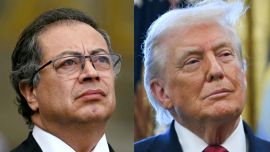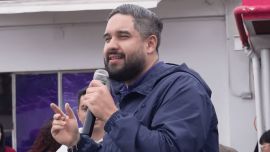In his 2022 book, The Rise and Fall of the Neoliberal Order, US historian Gary Gerstle argues that Western democracies should be understood through the concept of “political orders” — defined as a set of ideologies, policies, and constituencies that shape the relationship between governments and society in ways that endure beyond electoral cycles.
Gerstle identifies two major orders in modern US history: the New Deal Order and the Neoliberal Order. The former arose under the shadow of the Communist threat from the East, defined by government intervention to foster welfare. The latter emerged after the Red threat had faded, prioritising free markets, deregulation, and limited government intervention aimed at promoting economic growth and individual freedom through market-based solutions.
The 2008 financial crisis marked the beginning of the end for the Neoliberal Order, fracturing trust between the political establishment and the public. The resulting shift could have leaned left (Bernie Sanders) or right (Donald Trump). Barack Obama, though progressive in rhetoric but ultra politically correct, continued to work within a neoliberal framework, failing to fully grasp the changing public mood.
Trump’s victory and the Brexit referendum in 2016 marked the first significant political manifestations of this change of order. Trump’s impressive comeback this week appears to solidify it further.
The next question is where President Javier Milei fits into this puzzle. Trump’s victory has fuelled euphoria within the Milei administration, supported by macroeconomic stability, reduced inflation, financial market optimism, and a budding economic recovery. “We’re here for good; we are here until 2047,” one jubilant Casa Rosada official reportedly told a Clarín journalist off the record this week. Within the President’s inner circle, they believe that Trump’s success validates their stance on both international and domestic affairs — one that dismisses institutions, consensus, and political correctness.
Yet Milei does not fit neatly into this new right-wing order, at least on Trump’s terms. Rather than ending the Neoliberal Order, Milei claims he wants to revive it in Argentina. Neoliberalism rose here when the Peronist party took a neoconservative turn under Carlos Menem in the 1990s and later fell away in the economic and political crisis that ejected Menem’s successor Fernando de la Rúa out of office half-way through his term in December 2001.
Milei’s novelty for Argentina goes beyond his economic programme, which has been attempted before (under the 1976-1983 military dictatorship’s early years, during Menem’s presidency, and in Macri’s administration). It represents a shift away from democratic values and language — a shift the public seems willing to ignore, as though these values had never held real significance. This is where he aligns with Trump, though the blame may not lie with either of them alone.
As if echoing Gerstle’s theory, progressive media outlets in the US, like The New York Times, have entered a period of public introspection and catharsis after Trump’s victory. A shock-filled banner headline for instance read, “Victory Changes Nation’s Sense of Itself,” with an explainer that followed: “The assumption that Mr Trump represented an anomaly, soon to be relegated to the ash heap of history, was washed away on Tuesday night…” Is Trump what the US has become? Is Milei what Argentina has become?
It took Trump a full term and this historic re-election — making him only the second US president after Grover Cleveland to serve non-consecutive terms — to earn full recognition as the face of a new political order in the United States. Milei is still far from reaching that status, and many still think — and hope — that he will prove to be an anomaly. Yet, almost a year into the La Libertad Avanza leader’s presidency, it’s clear he aims to represent something larger than himself: a new zeitgeist.
The political order Milei envisions may not be original in economic terms, but it breaks a pattern Argentina has held since the end of the military regime in 1983: democracy is stable, but the economy is not. Inspired by Trump and his fellow Western right-wingers, Milei believes that the Argentine public is willing to invert the terms of this equation — sacrifice democratic nuances, get the economy to deliver (emphasis on “deliver.”). The risk, of course, is that the country could ultimately be left with neither.























Comments